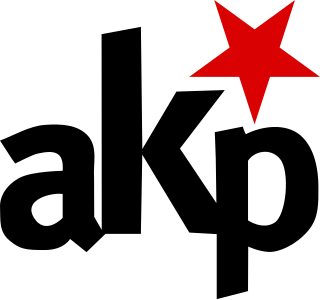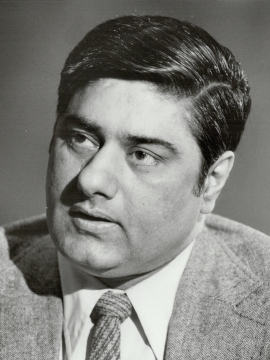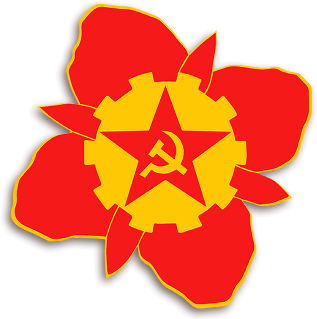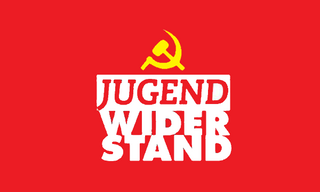
Maoism, officially called Mao Zedong Thought by the Communist Party of China (CPC), is a variety of Marxism–Leninism that Mao Zedong developed to realize a socialist revolution in the agricultural, pre-industrial society of the Republic of China and later the People's Republic of China. The philosophical difference between Maoism and traditional Marxism–Leninism is that a united front of progressive forces in class society would lead the revolutionary vanguard in pre-industrial societies rather than communist revolutionaries alone. This theory, in which revolutionary praxis is primary and ideological orthodoxy is secondary, represents urban Marxism–Leninism adapted to pre-industrial China. Later theoreticians expanded on the idea that Mao had adapted Marxism–Leninism to Chinese conditions, arguing that he had in fact updated it fundamentally and that Maoism could be applied universally throughout the world. This ideology is often referred to as Marxism–Leninism–Maoism to distinguish it from the original ideas of Mao.
Marxist-Leninistiska Kampförbundet, full name Marxist-leninistiska kampförbundet för Sveriges kommunistiska parti, was a communist political organization in Sweden formed in 1970 by Vänsterns Ungdomsförbund, the youth organization of VPK. Within VUF several ultraleftist tendencies had surged during the 1960s, orientating it toward Maoism. VUF broke with VPK in 1968, and in 1970 they formed MLK. MLK was ideologically almost identical with the larger KFML/SKP, with Marxism–Leninism-Mao Zedong Thought as the ideological backbone. MLK supported KFML/SKP in elections.

The Party of Labour of Albania (PLA), also referred to as the Albanian Workers' Party (AWP), was the ruling and sole legal party of Albania during the communist period (1945–1991). It was founded on 8 November 1941 as the Communist Party of Albania but changed its name in 1948. The party was dissolved on 13 June 1991 and succeeded by the Socialist Party of Albania and the new Communist Party of Albania. For most of its existence, the party was dominated by its First Secretary, Enver Hoxha, who was also the de facto leader of Albania.

The Workers' Communist Party was a Norwegian communist party (1973–2007). AKP was a Maoist party and one of two communist parties in Norway; the other was the older Communist Party of Norway which had remained pro-Soviet. The relationship between the two parties was characterized by strong hostility.
The New Communist movement (NCM) was a diverse left-wing political movement during the 1970s and 1980s. The NCM were a movement of the New Left that represented a diverse grouping of Marxist–Leninists and Maoists inspired by Cuban, Chinese, and Vietnamese revolutions. This movement emphasized opposition to racism and sexism, solidarity with oppressed peoples of the third-world, and the establishment of socialism by popular revolution. The movement, according to historian and NCM activist Max Elbaum, had an estimated 10,000 cadre members at its peak influence.

The Communist Party of Greece (Marxist–Leninist), is a Maoist communist political party in Greece.

The Marxist–Leninist Party of Germany is a communist political party in Germany. It was founded in 1982 by members of the Communist Workers Union of Germany and is one of the minor parties in Germany.

Unified Communist Party of Italy is a political party in Italy. The party upheld the Three Worlds Theory and retained contacts with the Chinese Communist Party following the death of Mao Zedong. The party vehemently opposed the Soviet Union and the Italian Communist Party. It was led by Osvaldo Pesce. The party published the journal Linea proletaria.
Unity Centre of Communist Revolutionaries of India (Marxist-Leninist) is a political party in Andhra Pradesh, India. It was formed by D.V. Rao after the 1980 general elections, as a split from the original Unity Centre of Communist Revolutionaries of India (Marxist-Leninist). D.V. Rao had been the Central Committee Secretary of UCCRI(ML). However, differences had emerged on issues like how to relate to developments in China after the death of Mao Zedong. D.V. Rao maintained that China under Deng Xiaoping remained a socialist state.

The Communist Party of Germany/Marxists–Leninists was a clandestine communist party active in West Germany and East Germany during the Cold War. It was founded in 1968 by former Communist Party of Germany (KPD) official Ernst Aust, who subsequently became the party's chairman. An anti-revisionist party, the KPD/ML upheld the legacy of Soviet premier Joseph Stalin and supported China under Mao Zedong and later Albania under Enver Hoxha after the Sino-Albanian split. At its peak in the mid-1970s, the party claimed a membership of around 800.
The Organisation of Marxist–Leninists of Greece, known by its Greek acronym OMLE (ΟΜΛΕ), was a Greek anti-revisionist Marxist-Leninist political movement, which split from the Communist Party of Greece in 1964, opposing Soviet revisionism.
The Workers' Institute of Marxism–Leninism–Mao Zedong Thought was a British political organisation and cult based in Brixton, London. It was formed by Aravindan Balakrishnan in 1974 after his expulsion from the Communist Party of England (Marxist–Leninist). Many of its members lived in a commune originally located at its headquarters. In the early 1980s, after a police raid, Balakrishnan decided to move the group's activities underground.
In 1980, an International Conference of Marxist–Leninist Parties and Organisations was organized by communist groups dissatisfied with the new leadership in China after the death of Mao Zedong and the overthrow of the Gang of Four. Participants were:

The Communist Party of Ireland (Marxist–Leninist) was an anti-revisionist political party based in Ireland. It had strong links to the Party of Labour of Albania, Communist Party of Canada (Marxist–Leninist) and Revolutionary Communist Party of Britain (Marxist–Leninist).

Hardial Bains was an Indo-Canadian microbiology lecturer, but was primarily known as the founder of a series of left-wing movements and parties foremost of which was the Communist Party of Canada (Marxist–Leninist). Presenting himself as staunchly anti-revisionist and pro-Stalinist, until his death, Bains acted as the spokesperson and ideological leader of the CPC (ML) — known in elections as the Marxist–Leninist Party of Canada. During his lifetime, Bains' outlook swung from supporting the Soviet Union under Joseph Stalin, to Mao Zedong's China, then later to Enver Hoxha's Albania. Shortly before he died, and abandoning his previous sharp criticisms of the country, Bains turned to Fidel Castro's Cuba for inspiration. Spending most of his life in Canada, Bains was also politically active in England, Ireland, United States and India.

The Communist Party of Canada (Marxist–Leninist) is a federal political party in Canada. It was founded in 1970 by Hardial Bains, a staunch Stalinist and anti-revisionist. The CPC(M-L) has been registered with Elections Canada as the Marxist–Leninist Party of Canada (MLPC) since 1974, as the party is prohibited from using the name "Communist Party of Canada" in Canadian elections to avoid confusion among voters. The party is not an offshoot of the Communist Party of Canada; its early membership came from student-led organizations active in the 1960s. After a period of alignment with Maoism and China, the CPC(M-L) pursued a Hoxhaist, pro-Albanian line until the early 1990s. At present, the party directs most of its public support to Cuba and North Korea.
The Revolutionary Communist League of Britain was a Maoist political party in Great Britain, formed in 1977.
Marxism–Leninism–Maoism (MLM) is a political philosophy that synthesizes and builds upon Marxism–Leninism and the thought of Mao Zedong. Marxism–Leninism–Maoism was first formalized by the Shining Path in 1982.
The Revolutionary Internationalist Movement (RIM) was an international communist organization founded in France in March 1984 by 17 various Maoist organisations around the world. It sought to "struggle for the formation of a Communist International of a new type, based on Marxism–Leninism–Maoism". The RIM appears to be defunct as are many of the founding organisations and many changed their names over the years, or have dropped active armed struggle.

Youth Resistance was a Maoist youth group in Germany.











